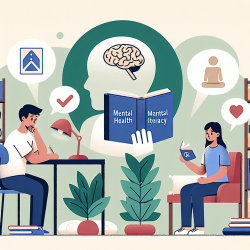Unlocking Insights: Work-Related Low Back Injuries and Their Impact
As a practitioner in the field of speech-language pathology, understanding the multifaceted nature of physical health issues, such as low back pain, is crucial. Recent research by Hincapié et al. (2008) sheds light on the significant association between work-related low back injuries and the prevalence of low back pain in the general population. This blog aims to distill these findings and provide actionable insights for practitioners seeking to enhance their practice through data-driven decisions.
The Research at a Glance
The study utilized data from the Saskatchewan Health and Back Pain Survey, which involved a cross-sectional survey of 2,184 adults. Key findings revealed that a history of work-related low back injury is strongly associated with varying degrees of low back pain severity. Notably, the study found no significant association between such injuries and depression, suggesting that the physical impact of these injuries is more pronounced than the psychological impact.
Implications for Practitioners
Understanding these associations is vital for practitioners, especially those working with children, as it underscores the importance of early intervention and prevention strategies. Here are some actionable steps practitioners can take:
- Early Identification: Recognize signs of low back pain early in clients with a history of work-related injuries. Early intervention can prevent the progression to more severe pain.
- Holistic Approach: Adopt a comprehensive approach that considers both physical and psychological factors, even though the study found no direct link to depression. Addressing overall well-being can enhance recovery.
- Preventive Strategies: Implement workplace ergonomics and safety training to reduce the risk of work-related injuries, thereby minimizing future episodes of low back pain.
Encouraging Further Research
While this study provides valuable insights, it also highlights the need for further research. Practitioners are encouraged to explore the following areas:
- Longitudinal Studies: Conduct studies that track individuals over time to better understand the long-term effects of work-related low back injuries.
- Psychosocial Factors: Investigate the role of psychosocial factors in the recovery process, despite the lack of a direct link to depression in this study.
- Childhood Interventions: Explore how early interventions in children can prevent the development of chronic low back pain in adulthood.
Conclusion
By integrating the findings from this research into practice, practitioners can make informed, data-driven decisions that improve outcomes for individuals experiencing low back pain. This approach not only enhances the quality of care but also contributes to the broader understanding of work-related injuries and their impact on health.
To read the original research paper, please follow this link: Is a history of work-related low back injury associated with prevalent low back pain and depression in the general population?










